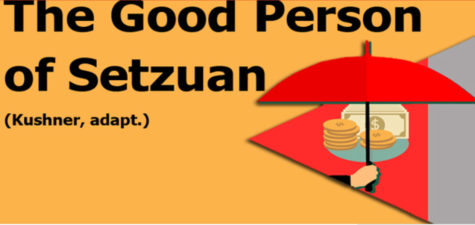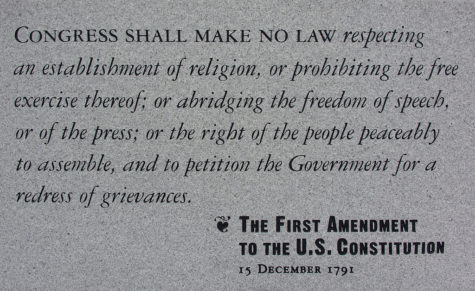Nothing is JUST Black and White: ‘The Good Person of Szechwan’
Gender politics, capitalism and class-power struggles are all relevant issues in today’s society. But the source of this upcoming UH Manoa performance is a play written during the rise of Nazis in 1930 Germany.
“The Good Person of Szechwan” is a play written by Bertolt Brecht in 1943, about three gods visiting the earth to find one good person. They meet Wang the Waterseller, who introduces them to Shen Te, a prostitute who never says no. They ask to stay with her. She agrees, and later buys a tobacco shop with the money the Gods give her. But in order to keep her shop in business, she must put her interests first. The Gods believe that Shen Te is the one they’re looking for, but when they come back to check in on how she is doing, will she still be the ‘one good person’?
When asked about what he wanted his audience to feel, Director Ike Webster said, “I want the audience to leave with questions for themselves.” He wants the audience to be critical of the play, and reflect on themselves as they watch it.
“Identity is what you repetitively do,” said Webster. He wants them questioning who their identity is.
The play can be related to Hawaii and its issues.
“Homelessness and displacement; all current issues here in Hawaii,” said Qalil Ismail.
Ismail plays a homeless character called Wang the Waterman.
He said, “When you play someone, you have to carefully observe them to do their character justice. Observing homeless people helped me understand them and their situation more.”
Acting in this play has shed new light on the topic, which he plans to show in his acting.
Performances will run October 10, 11, 12, and 13 at 7:30 pm, and on October 14 at 2 pm in the Earle Ernst Theatre. This production is not recommended for children under 13, due to some adult language, situations, and themes. Tickets are $8-$18.




